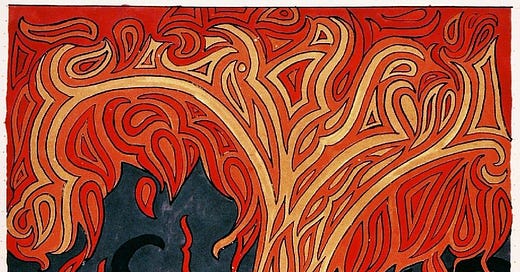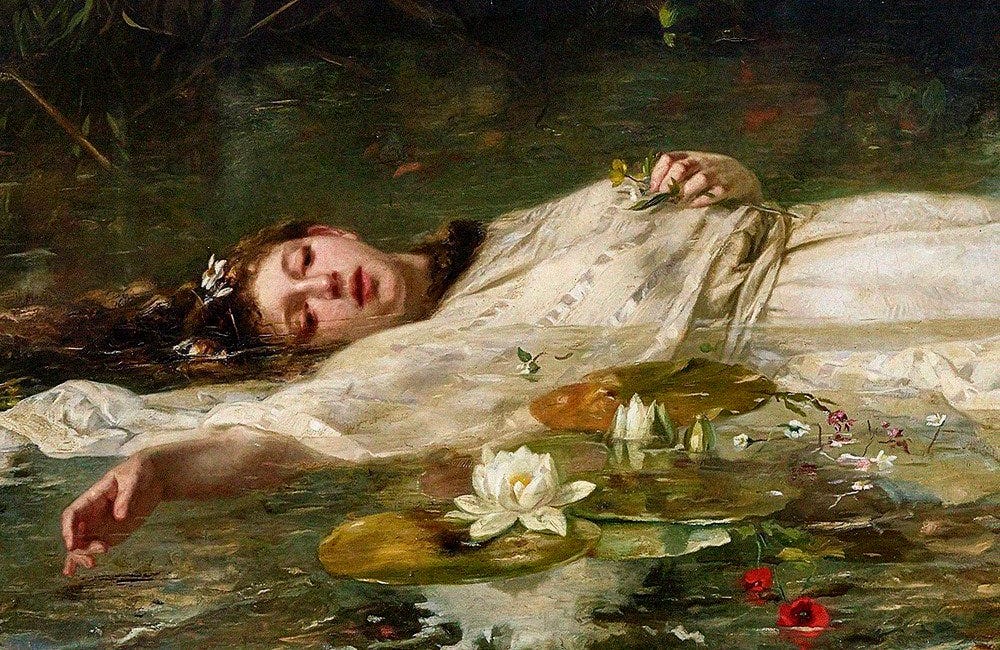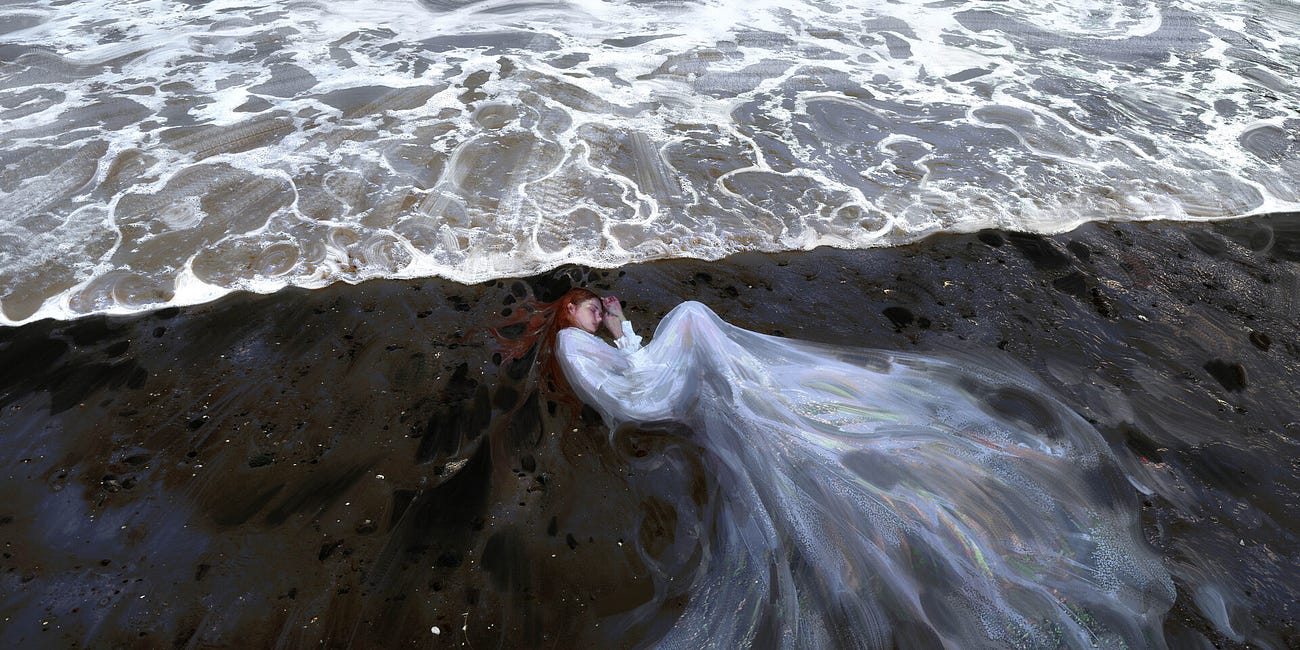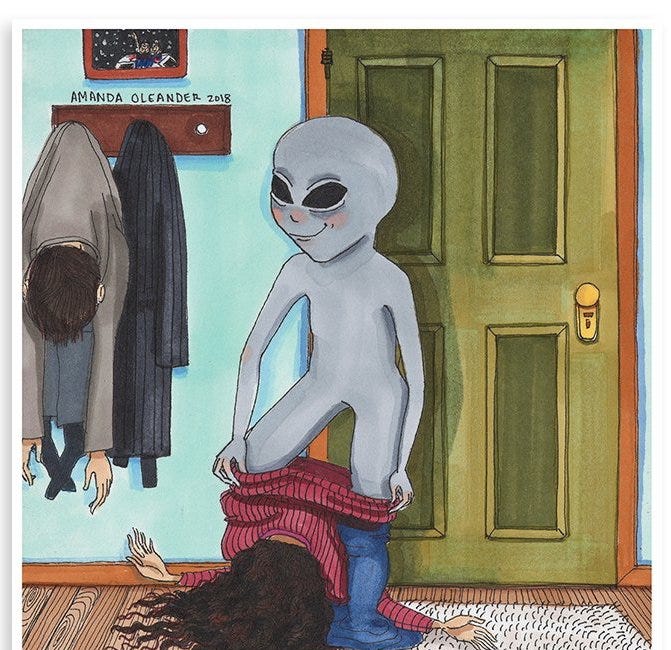I used to think it was honourable to hide. I thought that accomplishments, success, and achievement were worth pursuing but once you had them, it became your job to resist having them. To not be too proud, to not be ‘found out’ for your talent and success. I used to think that being fully seen was an act of hubris; a symbol of impurity.
Much of my journey to self-expression has been this process of shedding the belief that to be humble is to be quiet. This belief that humility is coupled with this unwillingness to be seen: this intense drive to succeed coupled with a just-as-intense drive to make sure none of that success gets noticed. I don’t know if this was a belief I invented or picked up from the culture around me, but I grew up with a sense that while success was worth aiming at, celebrating it was dishonourable—an act of excessive pride.
I completed my engineering degree on a full scholarship, something that probably should have filled me with self-belief at the time. Instead, a degree of resentment brewed towards it, because of all the energy I unnecessarily exerted on performing endless mental and social gymnastics to keep anyone from finding this fact out. It terrified me that those around me might know I had this scholarship, that they might ‘find me out’ and think of me differently, reframe their image of me (in hindsight, it’s clear that no one would have cared much, lol). But why was I so protective over this information? Why did the risk of being fully seen in this way feel so existentially threatening? I think it is because I had come to associate being seen for my gifts as evil or selfish—as some act of immorality. The consequence of this false belief is that I spent all of this precious life force energy on trying not to be seen, when I could have of just allowing myself to be seen (or not) and met those moments with grace when they came (or didn’t come). Essentially: I could have released attachment to how I was seen, and just started Being Me, regardless of how I would be perceived.
hiding is self-absorbed, shining is generous
As I have gotten older, I have noticed that those who have the greatest impact on the world are those who are willing to be seen—those who are able to be in their light; to express who they are without shrinking to make others feel more comfortable. I think of this quote from a Return to Love often:
“Our deepest fear is not that we are inadequate. Our deepest fear is that we are powerful beyond measure. It is our light, not our darkness that most frightens us. We ask ourselves, 'Who am I to be brilliant, gorgeous, talented, fabulous?' Actually, who are you not to be? Your playing small does not serve the world. There is nothing enlightened about shrinking so that other people won't feel insecure around you. We are all meant to shine, as children do… It's not just in some of us; it's in everyone. And as we let our own light shine, we unconsciously give other people permission to do the same. As we are liberated from our own fear, our presence automatically liberates others.”
When I think about what scares me about being fully seen, it comes down to the potential consequences of having my light seen at scale. For one, it will force me to embody my light more fully, honestly, seriously. It will force me to actually step into my power and be in it unapologetically. It will keep me from continuing to hide. And hiding is safe! Hiding is cozy; hiding is familiar. It’s easy to hide—it’s hard to be seen. Because to be fully seen requires an element of surrender to something beyond your control.
In a way, this is how myths are born: to become a myth is to become something larger than oneself. I have been reading a lot lately about prophets, myths, gods and goddesses. There is an interesting tension in these stories; these figures spark legacies that lived well beyond them. But what has always fascinated me about these figures of symbolism is not necessarily what they symbolize, but their willingness to be seen in a way that allowed them to become immortalized. Their devotion to their gifts.
abandoning the comfort for the calling
“Normalcy is like a paved road; it is comfortable to walk, but no flowers grow.” — Van Gogh
One of the figures I most look up to is Carl Jung. For anyone familiar with my work and his, I am sure that is no surprise: he is, in many ways, the father of modern psychospiritual thought. But Carl Jung is not just interesting for the ideas he explored, but for his devotion to allowing his light to flow through him. He abandoned his path of prestige, perception, predictability to go off on his own and honour his sense of resonance—his calling.
He was working under Sigmund Freud, who can only be described as The Man in the world of psychology at the time. He had to essentially betray Freud (in that he openly opposed Freud’s ideas) in order to explore his ideas fully. Freud resisted the direction Jung wanted to go in, calling him a mystic (Jung was a psychiatrist and greatly resisted being associated with mysticism), discrediting his work, questioning his ideas, degrading his gifts. But Jung had enough self-belief, enough curiosity about what he could discover inside himself to go off and honour what was trying to come through. Jung unlocked the world of the collective unconscious—a concept Freud rejected—the idea that all humans share some degree of collective psychic material, independent of the Self. In one of his final letters to Freud, Jung quotes Nietsczhe, saying:
“One repays a teacher badly if one remains only a pupil.”
Despite Freud’s disapproval, Jung let the light inside him shine; he didn’t stifle it to serve the system he was in, to get validation or approval from those he respected. He chose to explore his own gifts, his own curiosity. He chose to let himself be fully seen.
Ram Dass is another figure that interests me who followed a similar arc in some ways. He was an Assistant Professor at Harvard, teaching and studying psychology. He was charismatic, well-liked, living a beautifully adorned, prestigious life of success and perception-optimized glory. But he found himself deeply interested in (and eventually at the helm of) the rise of the psychedelics movement in 1960’s America. He started doing research on psychedelics (namely psilocybin and eventually LSD) under the roof of Harvard; but when his institution began to vehemently resist his ideas and desires to explore the psychic unknown, he was faced with a decision: stay where the version of himself he had begun to outgrow was accepted, or venture into the unknown, pursue curiosity without certainty about where it will lead. Be seen for who you really are, trust what feels true right now, even though it doesn’t necessarily fit into what others know you for. Eventually, Harvard made his decision easy by firing him, which fully liberated Ram Dass (Richard Alpert at that time) into his hero’s journey, which he was well-equipped for because he had already made peace with the need to depart from the nest of what felt safe to discover his true potential; to explore his innate gifts.
In a particularly trajectory-changing moment, Ram Dass talks about discovering the sense of pure presence and knowing within, that freed him from continuing to be the character he had been unconsciously playing his whole life. This is a long excerpt, but the contours of the experience are so rich that I feel called to share the whole thing. In his autobiography Being Ram Dass, he writes:
“I instantly felt a new, profound kind of peace I’d never before experienced. I had just found the “I”—that perceptual point of view, that essence of identity, that scanning device. I'd found that place of awareness beyond form, where “I” exists independent of social and psychological roles. This “I” was beyond time and space. And this “I” knew, it really knew. It was wise, rather than just knowledgeable. It was a voice inside that spoke truth. I recognized it and was one with it. I felt as if my entire life of looking to the outside world for affirmation and reassurance was over. Now all I needed was to look within, to that place where I knew. I was just presence, unfettered by the usual slipstream of random thoughts, images, and sensations. I nestled into this sense of pure being, feeling my way into this timeless, inner self that was independent of outer identity. I felt no need to do anything.
Gradually, the sensory world began to reassert itself, and I perceived my body and my senses again. But the Harvard professor and son of George and Gertrude Alpert had undergone a change. Those identities now seemed like familiar costumes, ones I could either assume or slough off. I remained in a quiet, blissful state of clear presence, a joyful, loving awareness. As my mind reengaged and thoughts again began to occupy my consciousness, I felt I would always remember and be able to reenter this state of being, this newly discovered calm center in myself.”
I found the scene that follows, where he expresses *how* this new change manifested in his relationship to the world especially fun to read. He was walking home right after this moment as a heavy snow hit Boston where he was staying with his parents at the time. In an act of jovial independence, he began to shovel his parents’ driveway at 3 AM, provoking his parents to lean out the window and tell him to stop, to which he responded by making them laugh and continuing to shovel, disarming the typical default roles that had existed between them. Ram Dass reflects:
“I saw the part in myself that was always tuning to what everybody else wanted. My parents were the voices I'd always listened to. Even when I was rebelling as when I rejected going to medical school-part of me still wanted their approval.
For the first time, I was listening to a voice inside, and that voice said, "It's okay to shovel snow." Usually, I responded to my parents' judgments and to my professors' and my bosses' expectations. They all held power over me. Now I felt a flow of power, but not from them, from within me. I had an inner impulse that was stronger than my social conditioning. Shovelling the walk was an expression of internal power laughing at external power.
In that moment, I knew I had reoriented. I was reentering my various roles, but from a new place. Under my parents' disapproving glare, I did something joyful for myself, from my inner being, dancing a jig with the snow shovel. It was scary, in a way, to reject those long-inculcated values and trust my heart. But I was asserting myself from my soul. I was free.”
The musician Leonard Cohen is another example of a life-destined-for-prestige-turned-modern-prophet story I adore. He was a member of the equivalent of an aristocratic Jewish immigrant family in Montreal, with the path to becoming a traditional spiritual leader in the community practically set in stone. But he felt called to a different life, a unique application of his spirituality. In the book Leonard Cohen: the Mystical Roots of Genius by Harry Freedman, the author writes that:
“Cohen’s religion was introspective and experiential, a way of engaging with the yearnings of his soul, a space for self-examination and a spiritual quest.”
Leonard Cohen refused to remain in the box that his environment and the world expected of him; he ventured towards the ideas that made him feel alive. He explored Buddhism and ended up training to become a monk. He went deep into exploring Judaism, Christianity, Kabbalah and all religious expressions that fascinated him (of which there were many). He ended up transmuting his unusually intense spiritual curiosity into poetry, and eventually music. He was particularly inspired by Rumi:
“Although their worlds could not have been more different, Cohen understood Rumi’s intense spirituality and sense of displacement, of being a stranger in a host culture not wholly one’s own. His poetry expresses the beauty of nature, cloaked in religious and mystical imagery. He was, according to Leonard Cohen, ‘in the same league as King David.’”
In the process of exploring his genuine curiosity and gifts—his ability to translate mystical, religious ideas into tangible, beautiful, soulful art that resonated with the masses, Leonard Cohen needed to abandon the stories of who he was expected to become, and instead had to become who he felt called to be. Like Ram Dass, he found that sense of inner knowing within, the wise inner “I” and learned to trust it:
“Cohen’s war was a spiritual and cultural confrontation, a battle for the human soul.”
I feel drawn to these stories of black-sheep-turned-cultural-liberator figures because I admire their boldness. I admire the degree to which they have chosen to honour their truth, their desires, their gifts. They had to betray their ego—the way they were used to being seen for what they truly resonated with, for the work they felt genuinely called to do. For the sake of exploration. For the sake of their art.
you can’t control how you’re seen, so stop trying
It is a strange thing, to feel so pulled to ideas, to expression, that you are willing to abandon the character you have spent your whole life being just to explore them.
As I get closer to what feel like my ‘gifts’—the aspects of myself that feel bigger than my persona, my ego, the role I play and the facts of my life I’ve always identified with—I am gaining a greater appreciation for just how courageous it is to take a true leap at your potential. I am beginning to appreciate just how much individuality is demonstrated by those who create art and legacies that have transcend their ‘destiny’. Simultaneously, this makes perfect sense, because anything that truly lasts needs to change the world in some way. What conforms to the current norms will soon be forgotten; work that provokes indifference fades fast. But these characters were willing to charter the unknown, to provoke resistance, rejection and a departure from the figures and institutions they were trained to revere, despite not knowing where it would lead. The willingness to sacrifice Richard Alpert to become Ram Dass, or Carl Jung the Prestigious, Rule-Following, Freud-loyal Psychiatrist to become Carl Jung the Psychic Explorer, or the transformation from Leonard Cohen the Would-Be Rabbi to become Leonard Cohen the Artist, requires a degree of true self-sacrifice, a level of such visceral humility that it is practically laughable these acts could ever be considered prideful.
fame, wealth, power
Of course, there is a balance though, right? How do you allow yourself to shine, to be fully seen, to devote yourself to your gifts, without letting your ego fall for the allure of fame, wealth and power. How do we redirect the energy that can be tempted by glory to serve the gifts with even more devotion?
I sense that the answer is to spend a lot of time with yourself; alone. To cultivate a space where you can return to your true values, your sincere mission, your earnest sense of right and wrong—your sense of what feels true and what feels like the temptation of ego. The scary thing about allowing your light to shine through you is that you cannot control what you attract. One of the benefits of hiding is that you can control the attention you are getting to a certain degree. And that is comforting. It is why hiding can be so tempting: it gives you a sense of control. And the ego loves control.
But the final step to courting your gifts is surrendering your final defences against controlling how you are seen, allowing what is in you to shine through you fully, without flinching or contracting. But most won’t see it this way; most will look at the likes of Carl Jung, Ram Dass, Leonard Cohen and other modern prophets as I call them and say they were egoic, that they had their own agendas, that they wanted fame, wealth and power for the sake of it. But when you study the stories of these courageous individuals, when you realize what they abandoned (comfort, safety, security) and leapt at (a calling that felt greater than themselves), you get a sense of the amount of humility it takes to be truly seen. As the quote I mentioned earlier says so bluntly: your playing small helps nobody. But your playing small helps you feel safe; because you know what it is like to play small! You know what it is like to manage this level of being known, this degree of attention, this amount of light. True courage is showing up with your gifts without attachment to how they are received. And when you can do that, you finally allow yourself to be seen fully. This is, in my view, the ultimate act of humility, because everything that comes after that is no longer under your control. Letting your light shine fully at the cost of your ego’s wishes to control your perception is one of the most humble acts you can do.
admiration as instruction
And if you don’t know where to look to find your gifts: notice what you are inspired by. Notice who you admire. Our sources of inspiration are our guides. They take us towards our magic. They show us where to look to find our gifts. The inexplicable resonance we feel with people, places, things, and art is the universe winking at us, a flicker of our magic catching our eye.
This is, in part, why I have I chosen to write about these three men: they show me where to look. They show me how to embody that inner knowing, that sense of “I” that is not just knowledgeable but wise, too. They show me how to honour myself instead of regulating to the expectations of others, to prioritize my embodied wisdom over the roles I’m used to playing. They show me what it looks like to walk a path of genuine truth, courage, and humility.
If you would like to receive all future Mind Mine posts, you can subscribe. You can also support Mind Mine by sharing this essay with someone who might like it or by leaving a comment:
If you’re interested in my 1-1 coaching designed to help individuals embark on their own process of inner-transformation, you can sign up to learn more here.
And if you’d like to stay informed about my course, Creative Liberation, designed to help you unblock yourself and express freely, you can sign up for future updates here.
Related essays—if you enjoyed this essay, you might also enjoy these ones:








“The scary thing about allowing your light to shine through you is that you cannot control what you attract.”
i love this callback to what i think was one of your older pieces - the idea of shining your light in order to attract people on a similar wavelength. it’s scary because we’d rather be the ones following the trail of someone’s light (we know who we’re approaching) rather than the other way around, but at the end of the day allowing your light through doesn’t just attract people that might change your life — it also allows you to be more authentically you.
I feel the power 😤